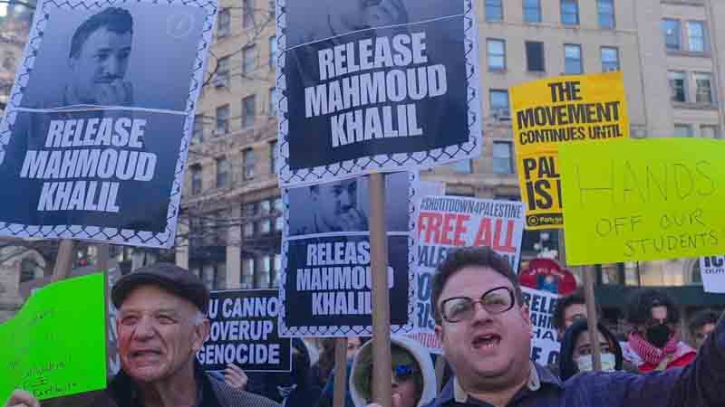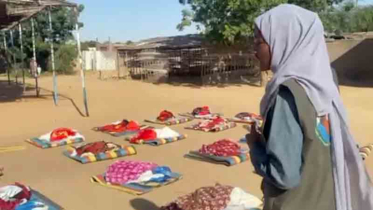
Mahmoud Khalil
Mahmoud Khalil, Yunseo Chung, and Rumeysa Ozturk are among the growing number of international students facing deportation from the United States due to their political activism in support of Palestinian rights. Their detentions mark the early stages of what experts say is a systematic campaign of political repression under the renewed Donald Trump administration, raising alarm over a dramatic erosion of civil liberties in American higher education.
In recent weeks, hundreds of student visas have reportedly been revoked without due process, solely based on political expression. This crackdown stems from Project Esther, a policy initiative launched by the Heritage Foundation on October 7, 2024. Critics warn the project redefines dissent as a national security threat and introduces sweeping measures to silence criticism of U.S. and Israeli policy—especially on college campuses.
A new academic report, Rejecting Project Esther, reveals the ideological underpinnings of this campaign. At its core, it is driven by a coalition of Christian Nationalists and right-wing political interests whose support for Israel is often motivated by apocalyptic religious doctrines. According to the authors, higher education is being targeted precisely because it remains one of the few spaces where students and scholars can interrogate systems of power—racism, imperialism, class oppression—and organize in solidarity with marginalized communities.
A Manufactured Threat
Perhaps the most alarming element of Project Esther is its invention of a so-called “Hamas Support Network” purportedly embedded within American universities. This imagined network casts nearly all pro-Palestinian organizations and voices as terrorist sympathizers, echoing the rhetorical structure of conspiracy theories like The Protocols of the Elders of Zion. Ironically, many targeted activists are Jewish themselves.
By initiating deportations of international students first, the policy tests legal and public tolerance before potentially extending to faculty, U.S. citizens, and academic programs. Analysts say this not only curtails free speech but also dangerously distracts from the actual sources of antisemitic violence in the U.S.—white supremacist and Christian nationalist groups.
Corporate Influence and Intellectual Paralysis
Part of the reason university administrations have been susceptible to these pressures lies in the broader corporatization of higher education. Increasingly managed like businesses, institutions have prioritized brand protection and donor satisfaction over their responsibility to uphold academic freedom. Simultaneously, a dominant cultural narrative that conflates criticism of Israeli state policy with antisemitism has stifled open discourse. This framing leaves little room for acknowledging the possibility that a Jewish-majority state can perpetrate systemic violence.
The results are chilling. Under Project Esther, dissent is reframed as subversion, faculty face ideological purges, and students are forced into silence under threat of surveillance or deportation.
Resistance and Responsibility
Despite widespread capitulation, some universities are resisting. While institutions like Columbia, Harvard, and Pomona have yielded to external pressure, others—such as Wesleyan, Tufts, and Brown—have defended their students and faculty, upholding academic freedom and protecting space for critical political inquiry. These examples show that alternative paths remain possible.
The campaign to suppress Palestinian voices on campus is ultimately a referendum on the future of academia itself. It raises critical questions: Who has the right to speak? Whose suffering is acknowledged? Whose history is taught? And how far will institutions go in protecting—or abandoning—the principles of free expression and inquiry?
“We are being targeted because we are feared,” one student activist said. “Our ideas threaten those in power who rely on our silence.”
This moment, say scholars and activists, demands moral courage—from faculty, students, and university leaders alike. In the face of growing institutional failure, defending academic freedom, human dignity, and the right to dissent is not only urgent—it is essential.
































.png)
.png)







